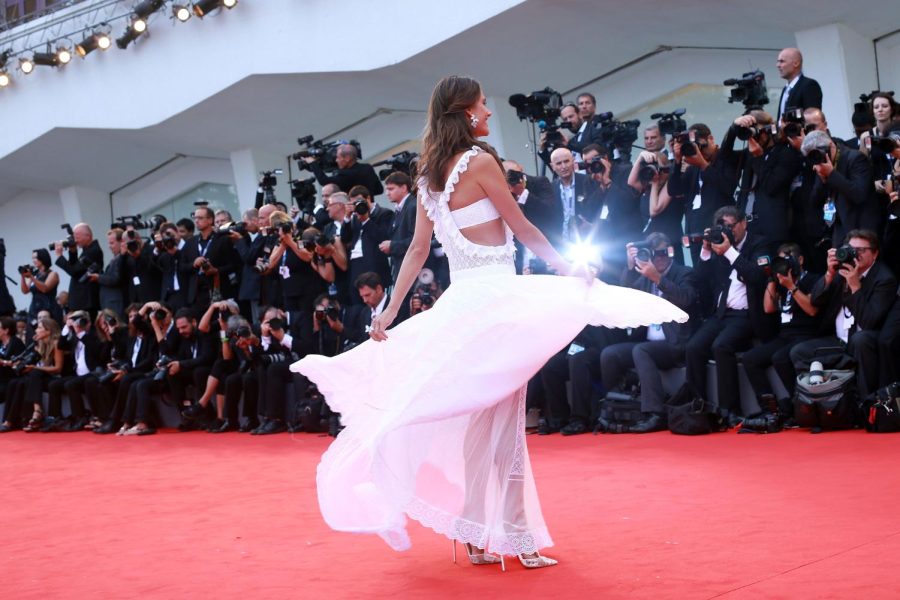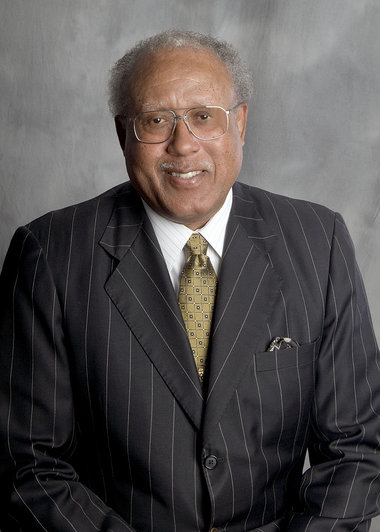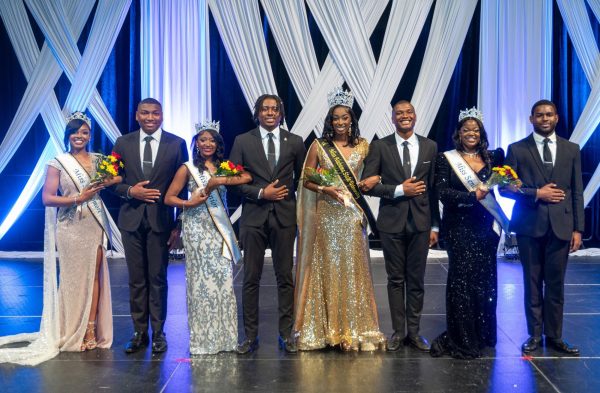Column: Celebrities: Do they have the right to privacy?
Celebrity showing off her dress at a red carpet event.
October 30, 2021
The world of entertainment is a vast, deep, dark sea of people put on a pedestal and highly publicized by the rest of society. Though this endless sea is beautiful and calm on the outside, are those celebrities truly OK on the inside?
Conversations on whether or not celebrities deserve to be treated like regular citizens are a constant theme, and I believe it is time to set the record straight. Celebrities absolutely deserve some type of dignity and respect to live out their lives without constant harassment from the paparazzi and various others. Examples like the Onassis v. Christian Dior case and the Ariana Grande v. Forever 21 case truly shows how vital privacy is to everyone, including celebrities. From messy tabloids to look-alike celebrities gaining inappropriate revenue without the real celebrities’ permission, a celebrity’s privacy is hanging by a thread.
The Onassis v. Christian Dior case discusses the right to privacy as the plaintiff sought protection from the court concerning the constitution. The First Amendment protects personality rights. This includes the commercial use of one’s image, which was discussed in the case. It resolves the question of the use of look-alikes of celebrities hence violating their right to privacy concerning sections 50 and 51 of the civil rights laws.
Former first lady to John F. Kennedy, Jacqueline Kennedy Onassis, sued the fashion company Christian Dior after they used her look-alike model without her permission. She was a former American first lady and a renowned figure. She took a preliminary order to prevent defendants from using or circulating specific publicity that contained her likeness in the form of a snapshot of her lookalike. Defendants participated in a publicity drive to advertise such designer brands and pictures. The defendants rejected the petition and said the public had already published, and that republication was not planned. They refused, therefore, to make any specific stipulation for this purpose.
Of course, in the age of technology now, these cases have become more prevalent and prominent in discussions regarding the right to privacy.
At the end of the trial, the court ruled that an image of a well-known celebrity, used in an advertisement and immediately identifiable, would act as an endorsement for the items. The court determined that the plaintiff’s name was improperly misappropriated for commercial purposes. It issued an injunction restraining the plaintiff from further release and prohibiting the lookalike from featuring in promotional commercials as Kennedy-Onassis. The statute’s essential function must be accomplished by providing a commonsense interpretation that precludes simple evasion.
Suppose we genuinely respect privacy in an age of manipulation, where any symbol of individuality for advertisement factories becomes grist. In that case, we must give it more than lip service and rebellious recognition. Let the news circulate that there is no free pass. Commercial hitchhikers who wish to drive on someone else’s celebrity need to learn to pay the fare or stand down.
In the Ariana Grande v. Forever 21 complaint, Grande alleged misleading affiliations under section 43(a) of the Lanham Act and violation of the right of publicity when confronted with commercials, including celebrity lookalikes, or even any potentially unfair usage of a celebrity’s identity without authorization. Although the arguments are identical, they have significant distinctions, but this still goes to show that privacy is vitally important.
In ads, celebrity endorsements have long been seen as a more effective way to draw exposure to a company or commodity than advertisements featuring inexperienced models or actresses, which is why celebrities are asking for such a high subscription charge. Any actors often prefer not to appear in certain commercials that are allowed by the advertising right.
Suppose companies cannot gain the lawful right to use the logo, name, speech, or individual of a celebrity in a publicity advertisement. In that case, they may wrongly think that they should use a look or sound similar to invoke a celebrity image in public concerning their product without actually utilizing the celebrity. The freedom to advertise and the Lanham Act’s false endorsing section provide celebrities with valuable mechanisms to correct some other erroneous impressions.



















Carlos Morrison • Dec 23, 2021 at 7:41 pm
Mr. Sanders, it’s good to see you put the thinking in the communication law class into your “viewpoint” piece. Excellent thinking, sir. Good job! Keep it up!